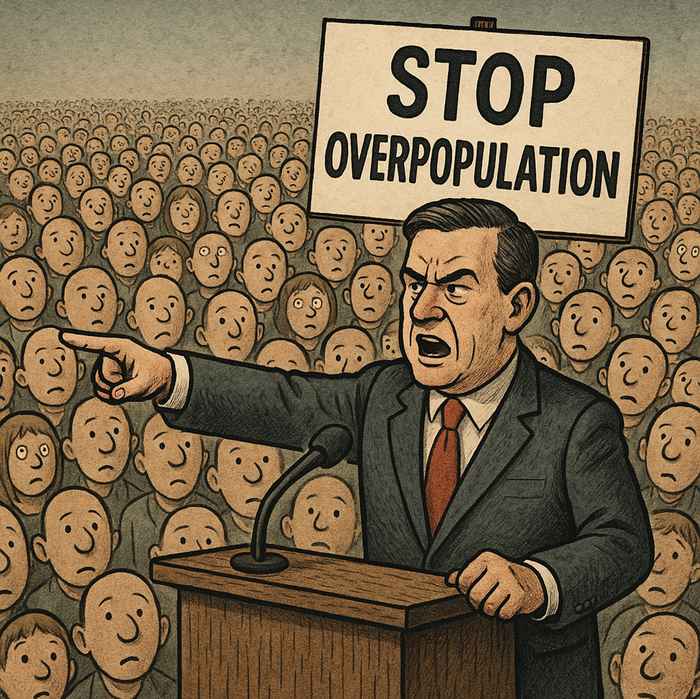The Population Argument – on the political misuse of the spectre of overpopulation
- Date
- 8 May 2025
- Time
- 18:00 -19:30
- Location
- Bushuis/Oost-Indisch Huis
- Room
- Humanities Labs workshop space, F0.01

At the turn of the 19th century, the Earth was home to around one billion people. Today, it is more than eight billion. Time and again, this growth has triggered warnings that can ultimately be traced back to the theories of economist Thomas Malthus: too many people leads to hunger and ecological and social crises. Dana Schmalz talks about how politicians employ the “population argument” for their own personal gain: only ever finding excess growth somewhere else, in the Global South or in marginalized communities. Governments use the argument to restrict reproductive rights, and development policy continues to be guided by racist ideas around reproduction and population growth. And more recently, anti-feminist groups cite falling birth rates as a way to prop up their conspiracy theories, in an effort to gain traction among a broader audience.
About the speaker
Dana Schmalz is a senior research fellow at the Max Planck Institute for Comparative Public Law and International Law in Heidelberg/Berlin. Her work focuses on international law and legal theory, in particular on refugee law and on human rights in the context of migration. Dana Schmalz holds a Ph.D. in law from the University of Frankfurt (2017) and an LL.M. in Comparative Legal Thought from Cardozo Law School, New York. Her book The Population Argument was published by Suhrkamp in 2024. Dana Schmalz was a postdoctoral research fellow at the Max Planck Institute for the Study of Religious and Ethnic Diversity in Göttingen (2017-2018), a visiting scholar at the Zolberg Institute in Migration and Mobility at the New School, New York, a visiting professor at the University of Bremen, and a visiting scholar at Columbia Law School, New York. She an Associate Editor at Verfassungsblog and belongs to the editors of the journal Kritische Justiz.
